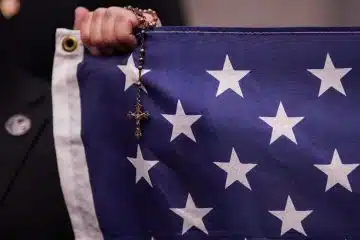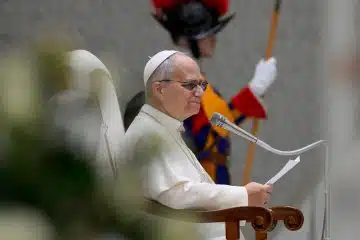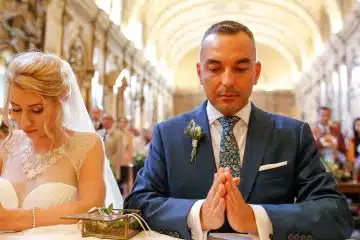Antigone revisited
March 1, 2012
By Father Earl Fernandes
Sophocles’ play “Antigone” opposes the wills of Antigone, daughter of Oedipus, and Creon, the King of Thebes. Creon had two sons: Eteocles, who was destined to reign, and Polyneices, who was exiled by Creon. Polyneices attacked the city. In the battle, the two brothers are killed. The king honors Eteocles as a hero but refuses to bury Polyneices, making a law that anyone who tries to bury him will be condemned to death. In defiance, Antigone attempts to cover Polyneice’s body, rather than leave it to the dogs, while her sister, Ismene cannot bring herself to go against the law. Antigone is discovered and is brought before Creon.
Creon argues for the supremacy of his law: “No. We must obey whatever man the city puts in charge, no matter what the issue — great or small, just or unjust. For there is no greater evil than lack of leadership, which destroys whole cities, turns households into ruins, and in war makes soldiers break and run away. When men succeed, what keeps their lives secure in almost every case is their obedience.”
Antigone is the advocate of the rights of nature, which express the will of the gods: “I did not think anything which you proclaimed strong enough to let a mortal override the gods and their unwritten and unchanging laws. They’re not just for today or yesterday, but exist forever, and no one knows where they first appeared.”
Elsewhere she says: “And so for me meeting this fate won’t bring any pain. But if I’d allowed my own mother’s dead son to just lay there, an unburied corpse, then I’d feel distress.”
Distress is an understatement! Antigone prefers death to violating her conscience and the laws of the gods. Such is the dignity of conscience! “Antigone” is full of antagonism. Divine laws are placed against human laws; written decrees against unwritten; temporal laws against eternal laws. The drama is intense. How is it resolved?
Antigone is sentenced to be buried alive. However, a blind prophet forecasts disaster. The gods are angry with Creon. Creon relents; buries Polyneices; and decides to free Antigone. He is too late. In the interim, Antigone hangs herself in prison. Haemon, the son of Creon and fiancé of Antigone, kills himself. Eurydice, Creon’s wife, Haemon’s mother, commits suicide in her grief. Creon loses everything. When human laws and individual choice are allowed to trample human dignity, freedom of conscience and the natural law, written on the human heart by the Creator, one thing follows: death. How tragic!
In my first column for The Catholic Telegraph, I also recounted the story of Antigone, worried about infringements upon the conscience of Catholic doctors, nurses, and pharmacists. Two years later, the Department of Health and Human Services announced that religious institutions, including Catholic schools and universities, charities and hospitals, will be required, against their consciences, to offer employees health coverage that includes sterilization, abortion-inducing drugs like the Morning After Pill and Ella, and contraception and almost health insurers will be forced to include those services in their policies, which many individuals will be forced to buy. The American bishops rightly view this as an assault against the dignity of conscience and religious liberty. They have encouraged Catholics to pray, fast, to inform their consciences
(www.usccb.org/conscience) and to contact their political representatives to reverse the decision. They are acting following the Second Vatican Council’s “Declaration on Religious Liberty” (Dignitatis Humanae) (n. 2), which states: “This Vatican Council declares that the human person has a right to religious freedom. This freedom means that all men are to be immune from coercion on the part of individuals or of social groups and of any human power, in such ways that no one is to be forced to act in a manner contrary to his own beliefs, whether privately or publicly, whether alone or in association with others, within due limits. The council further declares that the right to religious freedom has its foundation in the very dignity of the human person.”
Again the drama is intense! How will it be resolved? Will this be a truly Catholic moment in which Catholics awaken to defend the dignity of conscience and religious liberty, or will it be just another tragedy?
Father Fernandes is an assistant professor of moral theology and dean of the Athenaeum of Ohio/Mount St. Mary’s Seminary.













